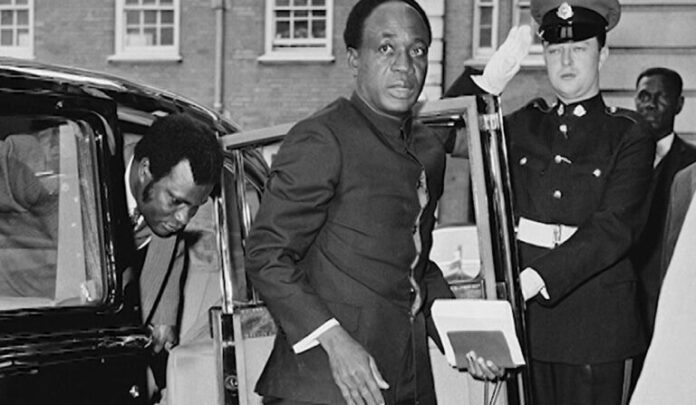Kwame Nkrumah, the first President of Ghana and a prominent figure in the Pan-African movement, is often described as a prophet or clairvoyant without honor in his land.
Born on September 21, 1909, Nkrumah’s legacy is a complex tapestry woven with threads of visionary leadership, anti-colonial struggle, and a commitment to African unity.
As we commemorate his birthday, the Western Nzema Youth League has taken the opportunity to eulogize Nkrumah, urging a national orientation that aligns with his ideals and vision for Ghana and Africa.
Nkrumah’s political journey began with a fervent desire to liberate Ghana from colonial rule.
His leadership was characterized by a profound understanding of the socio-political dynamics of Africa, and he envisioned a continent free from the shackles of imperialism.
His famous declaration, “We face neither East nor West; we face forward,” encapsulated his commitment to a united Africa, free from external influences.
However, upon his return to Ghana after years of study abroad, Nkrumah faced skepticism and resistance from various quarters, including some of his compatriots.
His radical ideas and bold policies often placed him at odds with traditional power structures, leading to his characterization as a prophet without honor.
Despite the challenges he faced during his presidency, Nkrumah’s vision for a united Africa is increasingly being recognized and celebrated globally.
In recent years, there has been a resurgence of interest in his ideas, particularly as African nations grapple with the legacies of colonialism and the ongoing challenges of economic dependency.
The Western Nzema Youth League’s eulogy for Nkrumah serves as a reminder of the importance of his vision in contemporary discussions about national identity, unity, and development.
The League’s call for a national orientation that reflects Nkrumah’s ideals is particularly timely.
As Ghana navigates the complexities of globalization, economic challenges, and social fragmentation, the need for a cohesive national identity rooted in the principles of unity, self-determination, and Pan-Africanism is more pressing than ever.
Nkrumah’s emphasis on education, industrialization, and social justice remains relevant, offering a blueprint for addressing the socio-economic disparities that persist in Ghana and across the continent.
Moreover, Nkrumah’s legacy is not confined to Ghana; it resonates throughout Africa and beyond. His advocacy for African unity and self-reliance has inspired generations of leaders and activists.
The African Union, established to promote unity and cooperation among African states, embodies the spirit of Nkrumah’s vision.
As the continent faces new challenges, including climate change, economic inequality, and political instability, the principles he championed are being revisited and embraced by a new generation of leaders.
In conclusion, Kwame Nkrumah’s life and legacy serve as a powerful reminder of the importance of visionary leadership and the enduring quest for African unity.
As we celebrate his birthday, let us heed the call of the Western Nzema Youth League for a national orientation that honors his ideals.
History is vindicating Nkrumah globally, and it is imperative that Ghana and Africa at large embrace his vision to forge a brighter future.

